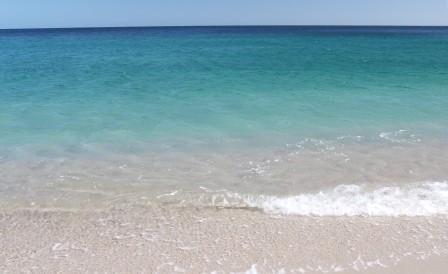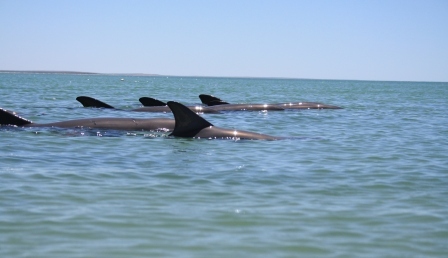 The book begins with a visit to the town of Pripyat in the Ukraine, a place of utter despair as Sir David Attenborough calls it, and when you read his description of what he is seeing and realise it was the site of the nuclear power plant ‘Chernobyl’, then it’s easy to understand why the bleakness. In 1986 when it exploded as a result of bad planning and human error, it left an environmental catastrophe that Sir David Attenborough draws a shocking comparison to our current unfolding environmental catastrophe, the decline of our planets biodiversity. It is a book of hope though too, explaining how if we act now, we can alter our greatest mistake.
The book begins with a visit to the town of Pripyat in the Ukraine, a place of utter despair as Sir David Attenborough calls it, and when you read his description of what he is seeing and realise it was the site of the nuclear power plant ‘Chernobyl’, then it’s easy to understand why the bleakness. In 1986 when it exploded as a result of bad planning and human error, it left an environmental catastrophe that Sir David Attenborough draws a shocking comparison to our current unfolding environmental catastrophe, the decline of our planets biodiversity. It is a book of hope though too, explaining how if we act now, we can alter our greatest mistake.
I listen to what Sir David Attenborough has to say, because his entire life has been one of observing and measuring the changes in our natural world and I believe in his expertise amongst all the voices out there on this subject. The documentaries he has created over the years have all been adding up to one big witness statement of the changes he has seen in the natural world, our jungles, our oceans and the world around us.
In this book the evidence and arguments he puts forward are very compelling. He acknowledges the resistance amongst some in the world, but I love his positivity in not looking at what we lose, but at what we gain in a sustainable world. For instance in losing our dependence on coal and oil for renewable energy we gain clean air and water, quieter and safer cities. In replanting land for wilderness we gain reconnection to the natural world and encourage the recovery of biodiversity. In losing rights to fish in certain areas we gain healthier oceans that regenerate and help combat climate change. This is coming from a man of 94 years of age. A man who gradually over time has become a vegetarian. I think if he can come to grips with the evidence and make changes, then surely we all can too.
He has a very sound argument from early on in the book which hits home, when he explains that any of our current practices that we can’t do forever, is by definition unsustainable and doing things that are damaging and unsustainable accumulates to a point where systems collapse, including ecosystems.
He gives examples of how our own human intelligence in creating and developing more efficient ways to fish and farm for example, have caused some of the issues we have today. It’s not hard to see the truth of this when looking at the past 200 years and the advancements and growth the world has seen. It’s a frightening read when he points out ‘tipping points’ and shows how the loss of one seemingly small part of nature has such wide repercussions in a whole complex system.
Throughout the book he also provides sobering statistics which show a pretty stark reality, some of which include these statistics:
In 1954 the world’s population was 2.7 billion, the carbon in the atmosphere 310 parts per million and there was 64% remaining wilderness.
By 1989 the figures were 5.1 billion population, 353 carbon parts per million, and 49% wilderness
By 2020, 7.8 billion, 415 parts per million and only 35% of our planet is wilderness.
These figures are pretty sobering and seem obviously unsustainable. Did you know that we currently cut down 15 billion trees each year and the worlds rainforests have been reduced by half, the main reason being to provide pasture for cattle for beef production, and secondly they are cleared for growing soy of which 70% goes to feeding livestock? I didn’t. It adds to the argument for reducing our meat intake, reducing demand, reducing our impact on the planet. But yes I can hear people up in arms about people losing their livelihoods, but all I can answer is to read the book and consider the arguments that David Attenborough provides. I love this quote of his ‘I would certainly feel very guilty if, having realised what the dangers are, I decided to ignore them’. There are some dire predictions in the book, of what the world would look like if we continue living in the scale that we are polluting, deforesting, consuming and more now. It does not bear thinking about.
There are some dire predictions in the book, of what the world would look like if we continue living in the scale that we are polluting, deforesting, consuming and more now. It does not bear thinking about.
There is some light at the end of the tunnel though with a vision for the future which provides hope. By this stage in the book and like me, you’re hopefully thinking what can I do for my part in this whole grim state of affairs? There are insightful pages on lowering our impact on the planet, switching to renewable energy, rewilding the seas, taking up less space in how we farm, changing our eating habits, rewilding the land and basically living more sustainable lives. All things that we can participate in, on a local scale for starters. The book includes some incredible photo pages that show more of the good, the bad and the ugly side of what we have created on our planet. There are glimmers of hope that show how when we decide to change our practices, we can have a quick positive effect on our planet. One example of this is that since whale hunting was banned, their numbers have recovered from a few thousand to now approximately 80,000 today. Doable actions!
The book includes some incredible photo pages that show more of the good, the bad and the ugly side of what we have created on our planet. There are glimmers of hope that show how when we decide to change our practices, we can have a quick positive effect on our planet. One example of this is that since whale hunting was banned, their numbers have recovered from a few thousand to now approximately 80,000 today. Doable actions!
I think it’s a natural human reaction for change to be scary and we naturally resist what we think will impact on our freedoms, our rights, our way of life, but I for one am willing to see hard decisions made now to provide positive outcomes in the future, for future generations.
The book is not a wish list of ‘greenie’ ideals but David Attenborough addresses the issues of solutions and guidance to a way out of the world’s predicaments. There are farming solutions and exciting possibilities for farming and wilderness conservation to co-exist, alternative income streams and words for any possible sceptics still out there. As a conclusion, the book finishes back at the Chernobyl accident site and provides the living proof of how nature is reclaiming the town and plant and animal life are repopulating the area.
As a conclusion, the book finishes back at the Chernobyl accident site and provides the living proof of how nature is reclaiming the town and plant and animal life are repopulating the area.
I hope there are more David Attenboroughs out there, we could certainly use more of this wisdom and foresight in the world. Imagine the future and the world we could have, if we actually plan towards how we want it to be!
Cheers
Glenys
A remarkable man and one of the very very few on the topic that is not politically motivated or motivated by greed . For me the key issue is the world’s unwillingness to address the issue of population growth.
LikeLiked by 1 person
I think there’s hope though 😊
LikeLiked by 1 person
Indeed … one can’t give up!
LikeLiked by 1 person
[…] on Our Planet, do check out the one written by Glenys from Caravan Correspondent which you can read here. […]
LikeLike
A wise man indeed and thankfully people do listen to him.
LikeLiked by 1 person
Another book by David Attenborough. Thank you 😊
LikeLiked by 1 person
I love David, he just says things as they are, I too hope there are more ‘David’s’ out there, it will be a sad world if there isn’t.
LikeLiked by 1 person
Yes, let’s hope so.
LikeLike
Lets hope people heed the message and yes this on my list too.
LikeLiked by 1 person
David Attenborough must be on everybody’s list at the moment. Just yesterday I read an article about him in the latest Diggers magazine. I am also reading an old book of his, Life on Earth – the pictures are still amazing all these years later. And here you have an excellent review of this book. His journey is quite interesting and still going at his age. Very inspiring!
LikeLiked by 1 person
I really think that sadly because of his age he is desperately trying to get his message across before it’s too late as well. 🤞He is wonderful and as he says it is his eye witness account of the way it is.
LikeLiked by 1 person
Our planet has seen some devastating impact from human behaviours. We’ve taken so much for granted, taken full stop and now it’s time we turn it around and start giving back and protecting our earth. David Attenborough has always been a champion on this front and this book is another eye opener and wake up call. How many will answer? Great post Glenys.
LikeLiked by 1 person
He is an absolute hero of mine and we need more people like him. Reading this book doesn’t give people many excuses for not wanting to make a difference in some way.
LikeLike